
A fixed culinary culture does not exist
Culinary cultures are not set in stone. Products that are perceived to be authentic for a particular culture, often are not. Lewis: “Across the centuries there has been so much cross-contamination of ingredients. Did you know coconuts are not Caribbean by origin? They were brought along in large numbers by European explorers as provisions on their ships. That most culinary cultures are characterized by products of different heritage, to me also contains some sort of beauty, despite its dark history. It clashes with the idea that we all have some sort of fixed, own (culinary) culture. In reality we are all mixed.”
Appropriation vs appreciation
According to Lewis, there is much room for improvement in the world of food. The definitions of cultural appropriation in the food department are still unclear, for many people. She herself also finds this to be a difficult subject. Lewis: “All contemporary culinary cultures are a melting pot of different influences. I for one have been criticized about my dishes, about them not being authentic enough and that I should not claim to make Caribbean food. Especially the older Caribbean generations can be very judgemental. I then ask myself: what defines authentic Caribbean food? The cuisine as we now know it is almost indescribable as it has been shaped to so many different influences over the years.
A bittersweet year
Despite 2020 being a year in which Lewis could finally present her long-anticipated concept, it was also a tough year for her. Lewis: “The murder of George Floyd was very traumatising for the whole black community. Not only because the event in and of itself was horrifying, but also because bad personal experiences resurfaced as some sort of flashbacks. It felt like a form of post-traumatic stress disorder. Initially I thought I was the only one experiencing this. After discussing it with various friends and hearing others’ stories, I realised that many people in the black community were suffering from this. Every form of micro-aggression, the subtle prejudgements you would normally lightly disregard, they all came back to the surface. It is horrible that this event had to happen in order to start a movement. I am happy that finally there are more conversations happening about discrimination, under-appreciation and cultural appropriation. I feel that there is now momentum, and people are open to listening and learning. We must utilise that now before it fades. I truly believe that past year, space was created for progression, I feel it around me.


In 60 articles the ‘Code Noir’ controlled all aspects of the lives of the enslaved people
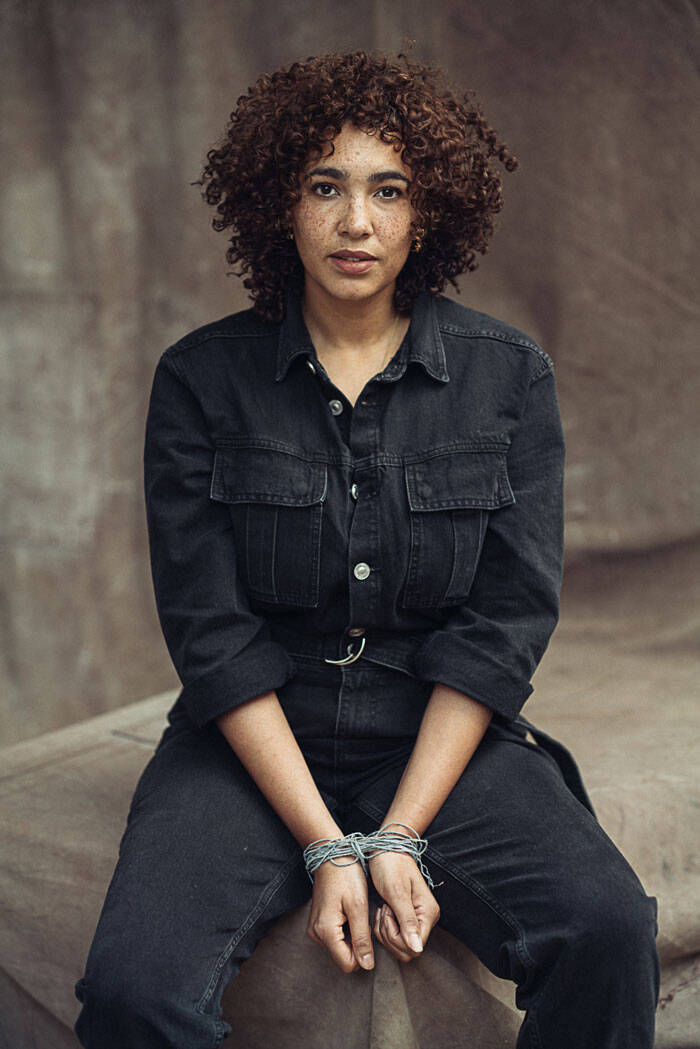

The four courses of Code Noir
First course, the native period:
Cassave – sweet potato – lima beans – corn salsa. “For this course I created a dish in which cassava is the core component. Cassava is a root vegetable originating from South America and the Caribbean. The native people lived from the products of their land, which were mostly vegetables.”
Second course, the European period:
Corn flour – pumpkin – garlic – bulgur – thyme oil – smoked eggplant. “Within the native Caribbean culture, corn was a much-respected crop, so much that it was even used in religious ceremonies. When the Europeans conquered the Caribbean, corn was declared as fodder. “I wanted to create an ironic course with corn as the core component. A product Europeans perceived to be unsuitable for human consumption, but nowadays do regularly consume.”
Third course, the African period:
Plantain – tomato – Scotch Bonnet peppers – avocado – peanuts. “On many plantations, slave owners refused to provide the slaves with food. Therefore, they gave them small pieces of land on which they had to produce their own crops, such as plantain.”
Fourth course, the Asian period:
Bara – chickpeas – tamarind – coconut yoghurt – cucumber. “This course is inspired by the ingredients that were used by Asian indentured servants that came to the British colonies in the Caribbean after the abolishment of slavery. Most of them were cheap labour forces working on the sugar cane fields in poor conditions.”
Iconic starch
The concept of Code Noir exists of four courses, each representing a different era within Caribbean history. Lewis: “Because Caribbean history is so extensive, we decided to narrate the story and construct the courses based on different types of starch. Every place has a type of starch related to it, a basic product that symbolizes a certain cuisine.”
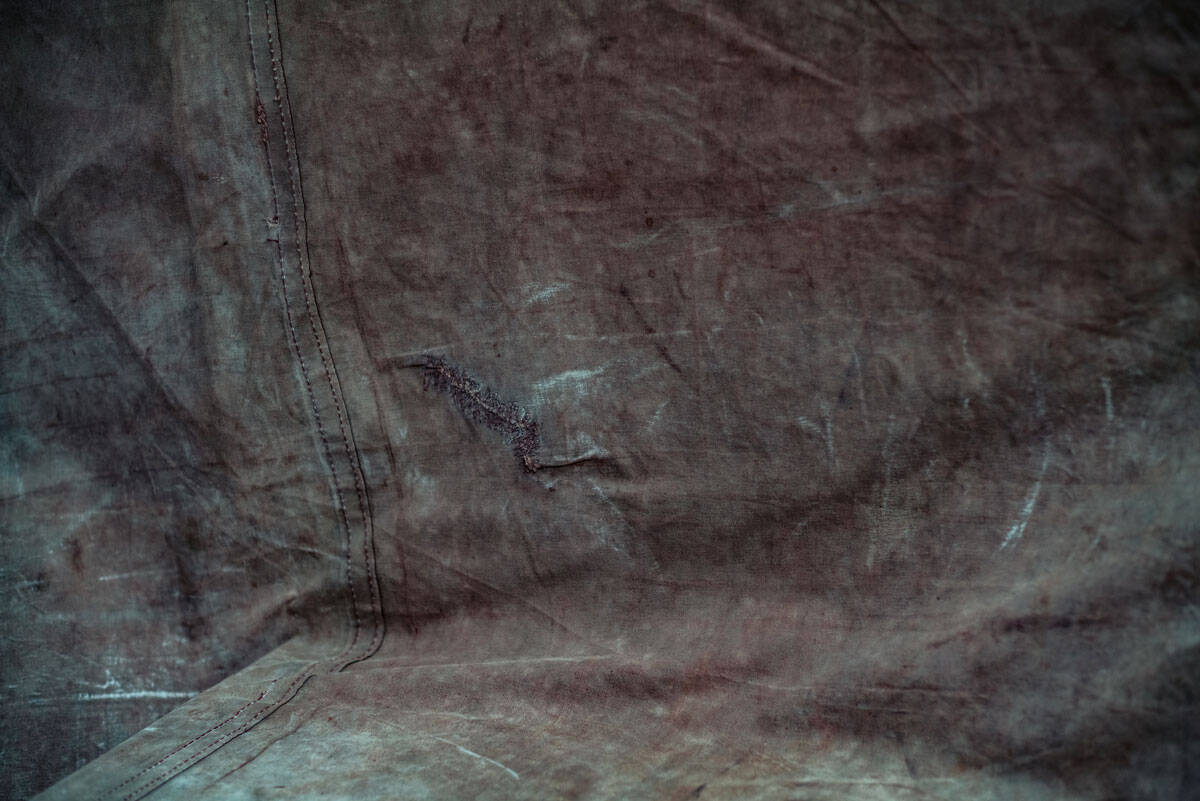


Every form of micro-aggression, the subtle prejudgements you lightly disregard, it all came back to the surface
Food influences everything
After a long period of literary research and developing the concept, Lewis’ Code Noir became reality past September in Mediamatic in Amsterdam. The concept is part of the Neo Futurist Dinner series, in which Mediamatic invites artists and chefs to develop and present a concept showcasing their views on food. Through these dinners, the institute strives to question the way in which food, art, science and politics are intertwined. It turned out to be a great match for Lewis, as her approach to cooking and research also regards the many aspects in which flood influences the world. “For example, consider the production of sugar on the plantations of Caribbean countries. The production and the trade of sugar changed the culinary landscape of the whole world forever. A world without sugar is very difficult to even imagine.”
Culinary heritage
Inspired by the background of various dishes, Lewis came up with the idea for Code Noir two years ago. Lewis: “With Code Noir I wanted to emphasize the culinary heritage of the Caribbean. When we consider food culture, we often concern ourselves with positive aspects such as diversity, richness in flavours and space for cultural interaction. I am convinced that food brings people together, but we also have to be conscious of the history behind different food cultures. In that history there are also painful subjects such as colonialization, slavery and (forced and voluntary) migration. I wanted to create a dinner in which guests acquire a better understanding of the cultural and colonial heritage of worldwide trade routes and the effects thereof on the Caribbean cuisine and culture. The name Code Noir, is directly inspired by ‘Le Code Noir’, a decree that defined the conditions of slavery in the French colonial empire.

Mixed family
Lewis, currently living in Amsterdam, grew up in South-London as a daughter of a Grenadian (an island belonging to the Lesser Antilles) father and an Irish mother. She grew up with a lot of diversity on the dinner table. Lewis: “I have a large family that is very close with each other. At home we always had uncles, aunts, nephews and nieces coming over. From my childhood, I remember the many birthday celebrations and parties that revolved around food. The table would be filled with all sorts of Caribbean dishes. Before the party started people would always be stressed about whether there would be enough food, despite there always being too much. Food in abundance provided conviviality.”
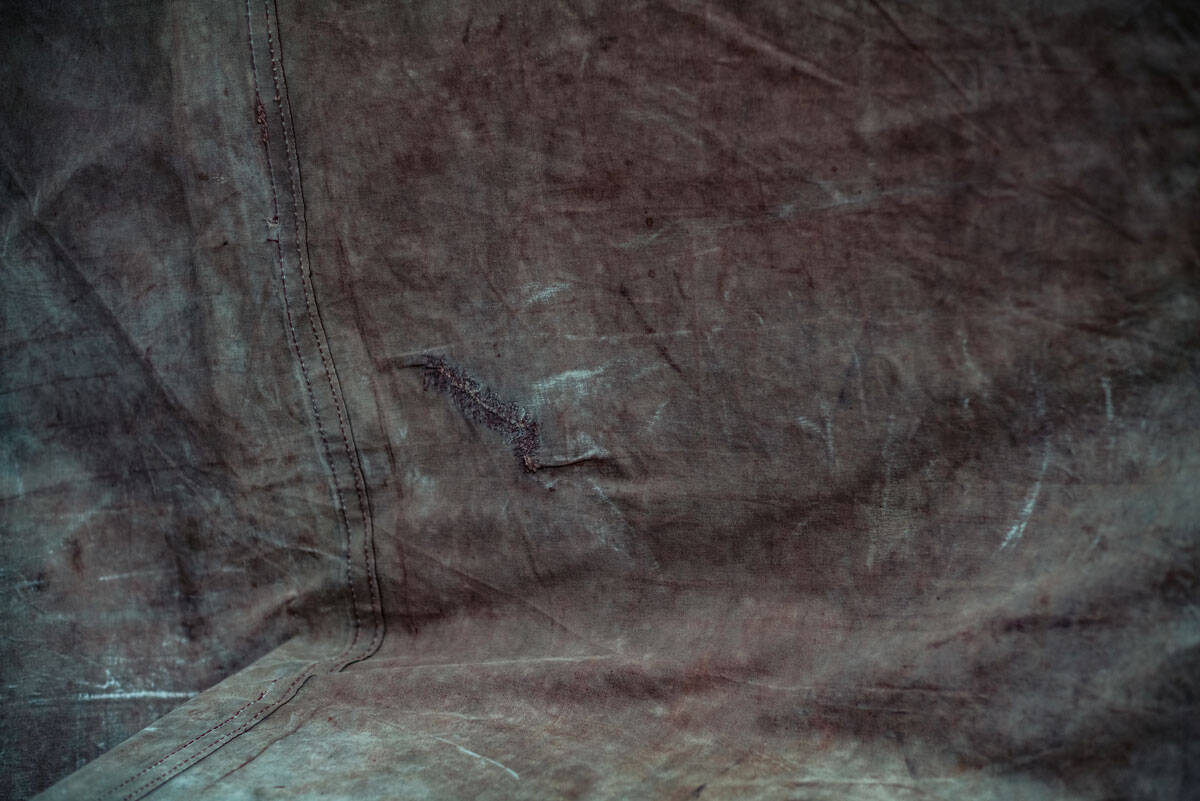


In a time in which the debate about cultural appropriation is actively ongoing, it is important to dwell on the origin and history of our food
Dutch Potatoes
We all know the famous painting; ‘The Potato Eaters’ by Vincent van Gogh; an image immediately associated with Dutch food culture. However, potatoes originally are not from Europe but from South America. We rarely consider the complex origin of the food on our plates. Lelani Lewis is one of those who do concern themselves with this matter on a daily basis.

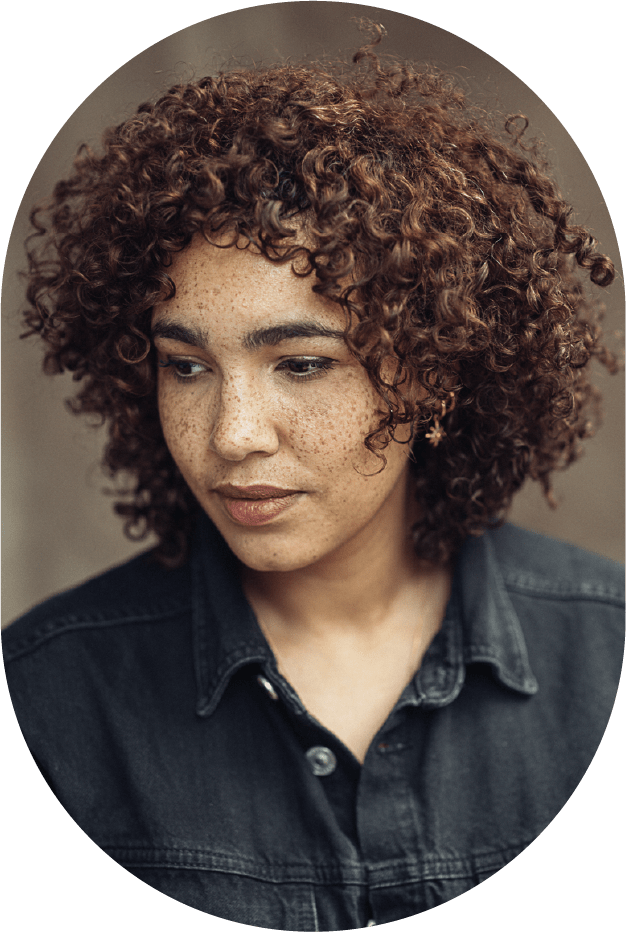


This year momentum was created for change
In many ways 2020 was a year of adversity. The covid-19 pandemic restricted our freedom and the murder of George Floyd caused trauma. At the same time, 2020 was a year of creativity and radical change. For chef, food stylist and self-proclaimed food activist Lelani Lewis, 2020 was also bittersweet. Despite the many setbacks, it was the year in which she could accomplish her dream project; Code Noir, a conceptual dinner about the effects of colonialism on the Caribbean cuisine.
Lisa Appels Rahi Rezvani Xiao Er Kong
interview
7 min
"This year momentum was created for change"














A fixed culinary culture does not exist
Culinary cultures are not set in stone. Products that are perceived to be authentic for a particular culture, often are not. Lewis: “Across the centuries there has been so much cross-contamination of ingredients. Did you know coconuts are not Caribbean by origin? They were brought along in large numbers by European explorers as provisions on their ships. That most culinary cultures are characterized by products of different heritage, to me also contains some sort of beauty, despite its dark history. It clashes with the idea that we all have some sort of fixed, own (culinary) culture. In reality we are all mixed.”
Appropriation vs appreciation
According to Lewis, there is much room for improvement in the world of food. The definitions of cultural appropriation in the food department are still unclear, for many people. She herself also finds this to be a difficult subject. Lewis: “All contemporary culinary cultures are a melting pot of different influences. I for one have been criticized about my dishes, about them not being authentic enough and that I should not claim to make Caribbean food. Especially the older Caribbean generations can be very judgemental. I then ask myself: what defines authentic Caribbean food? The cuisine as we now know it is almost indescribable as it has been shaped to so many different influences over the years.

A bittersweet year
Despite 2020 being a year in which Lewis could finally present her long-anticipated concept, it was also a tough year for her. Lewis: “The murder of George Floyd was very traumatising for the whole black community. Not only because the event in and of itself was horrifying, but also because bad personal experiences resurfaced as some sort of flashbacks. It felt like a form of post-traumatic stress disorder. Initially I thought I was the only one experiencing this. After discussing it with various friends and hearing others’ stories, I realised that many people in the black community were suffering from this. Every form of micro-aggression, the subtle prejudgements you would normally lightly disregard, they all came back to the surface. It is horrible that this event had to happen in order to start a movement. I am happy that finally there are more conversations happening about discrimination, under-appreciation and cultural appropriation. I feel that there is now momentum, and people are open to listening and learning. We must utilise that now before it fades. I truly believe that past year, space was created for progression, I feel it around me.


In 60 articles the ‘Code Noir’ controlled all aspects of the lives of the enslaved people

The four courses of Code Noir
First course, the native period:
Cassave – sweet potato – lima beans – corn salsa. “For this course I created a dish in which cassava is the core component. Cassava is a root vegetable originating from South America and the Caribbean. The native people lived from the products of their land, which were mostly vegetables.”
Second course, the European period:
Corn flour – pumpkin – garlic – bulgur – thyme oil – smoked eggplant. “Within the native Caribbean culture, corn was a much-respected crop, so much that it was even used in religious ceremonies. When the Europeans conquered the Caribbean, corn was declared as fodder. “I wanted to create an ironic course with corn as the core component. A product Europeans perceived to be unsuitable for human consumption, but nowadays do regularly consume.”
Third course, the African period:
Plantain – tomato – Scotch Bonnet peppers – avocado – peanuts. “On many plantations, slave owners refused to provide the slaves with food. Therefore, they gave them small pieces of land on which they had to produce their own crops, such as plantain.”
Fourth course, the Asian period:
Bara – chickpeas – tamarind – coconut yoghurt – cucumber. “This course is inspired by the ingredients that were used by Asian indentured servants that came to the British colonies in the Caribbean after the abolishment of slavery. Most of them were cheap labour forces working on the sugar cane fields in poor conditions.”
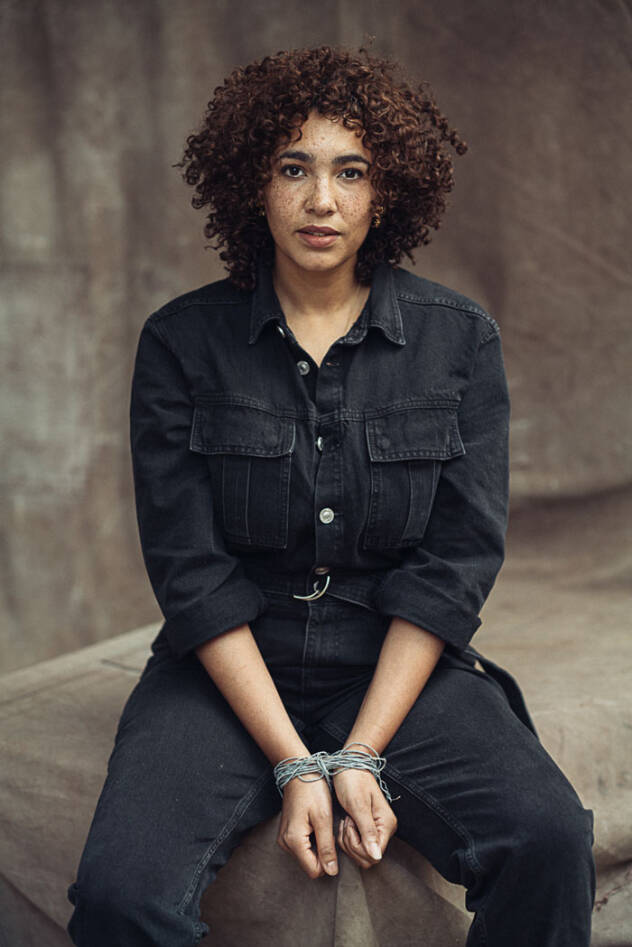
Iconic starch
The concept of Code Noir exists of four courses, each representing a different era within Caribbean history. Lewis: “Because Caribbean history is so extensive, we decided to narrate the story and construct the courses based on different types of starch. Every place has a type of starch related to it, a basic product that symbolizes a certain cuisine.”
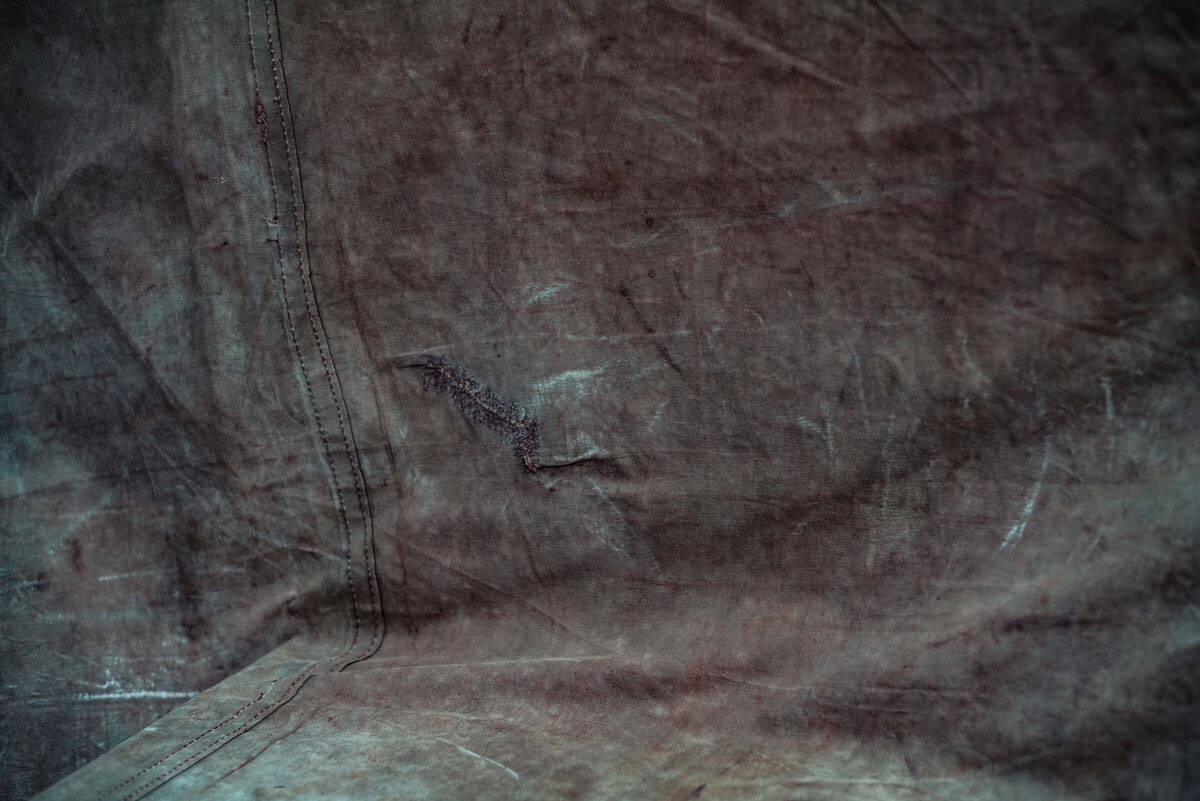


Every form of micro-aggression, the subtle prejudgements you lightly disregard, it all came back to the surface
Food influences everything
After a long period of literary research and developing the concept, Lewis’ Code Noir became reality past September in Mediamatic in Amsterdam. The concept is part of the Neo Futurist Dinner series, in which Mediamatic invites artists and chefs to develop and present a concept showcasing their views on food. Through these dinners, the institute strives to question the way in which food, art, science and politics are intertwined. It turned out to be a great match for Lewis, as her approach to cooking and research also regards the many aspects in which flood influences the world. “For example, consider the production of sugar on the plantations of Caribbean countries. The production and the trade of sugar changed the culinary landscape of the whole world forever. A world without sugar is very difficult to even imagine.”
Culinary heritage
Inspired by the background of various dishes, Lewis came up with the idea for Code Noir two years ago. Lewis: “With Code Noir I wanted to emphasize the culinary heritage of the Caribbean. When we consider food culture, we often concern ourselves with positive aspects such as diversity, richness in flavours and space for cultural interaction. I am convinced that food brings people together, but we also have to be conscious of the history behind different food cultures. In that history there are also painful subjects such as colonialization, slavery and (forced and voluntary) migration. I wanted to create a dinner in which guests acquire a better understanding of the cultural and colonial heritage of worldwide trade routes and the effects thereof on the Caribbean cuisine and culture. The name Code Noir, is directly inspired by ‘Le Code Noir’, a decree that defined the conditions of slavery in the French colonial empire.

Mixed family
Lewis, currently living in Amsterdam, grew up in South-London as a daughter of a Grenadian (an island belonging to the Lesser Antilles) father and an Irish mother. She grew up with a lot of diversity on the dinner table. Lewis: “I have a large family that is very close with each other. At home we always had uncles, aunts, nephews and nieces coming over. From my childhood, I remember the many birthday celebrations and parties that revolved around food. The table would be filled with all sorts of Caribbean dishes. Before the party started people would always be stressed about whether there would be enough food, despite there always being too much. Food in abundance provided conviviality.”
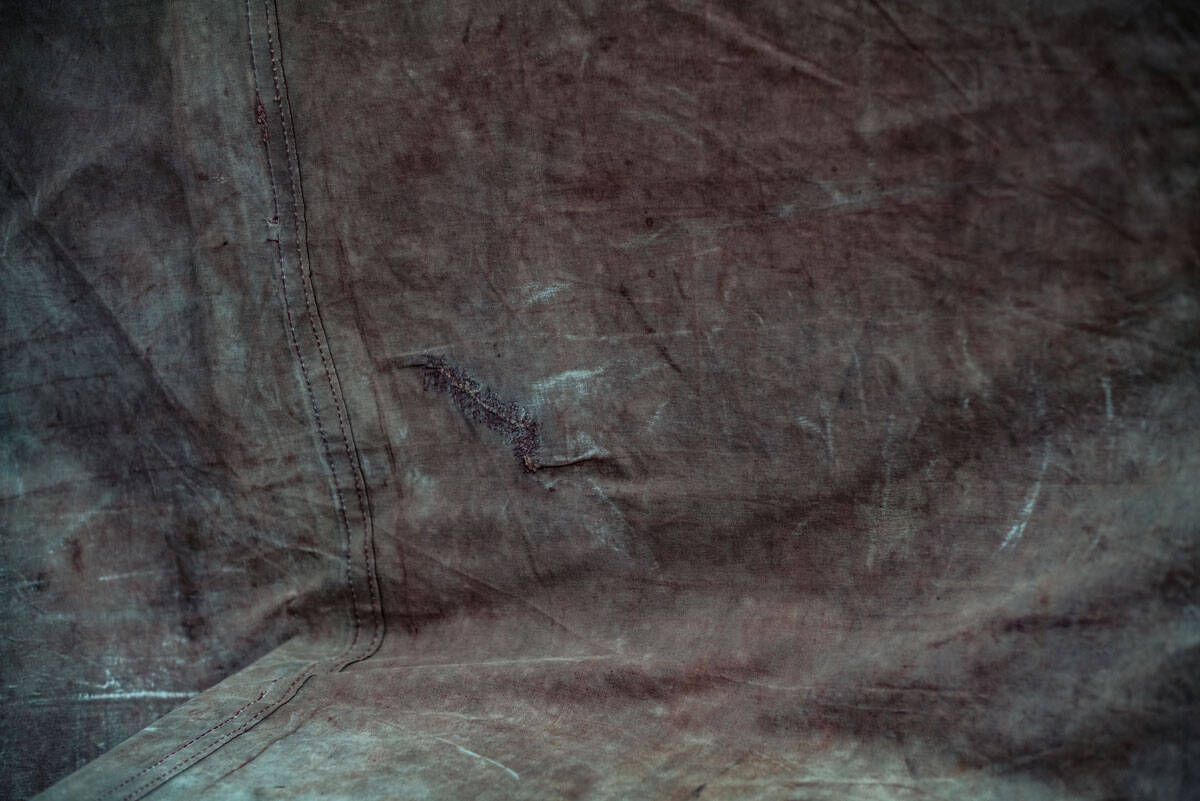


In a time in which the debate about cultural appropriation is actively ongoing, it is important to dwell on the origin and history of our food
Dutch Potatoes
We all know the famous painting; ‘The Potato Eaters’ by Vincent van Gogh; an image immediately associated with Dutch food culture. However, potatoes originally are not from Europe but from South America. We rarely consider the complex origin of the food on our plates. Lelani Lewis is one of those who do concern themselves with this matter on a daily basis.
In many ways 2020 was a year of adversity. The covid-19 pandemic restricted our freedom and the murder of George Floyd caused trauma. At the same time, 2020 was a year of creativity and radical change. For chef, food stylist and self-proclaimed food activist Lelani Lewis, 2020 was also bittersweet. Despite the many setbacks, it was the year in which she could accomplish her dream project; Code Noir, a conceptual dinner about the effects of colonialism on the Caribbean cuisine.
Lisa Appels Rahi Rezvani Xiao Er Kong
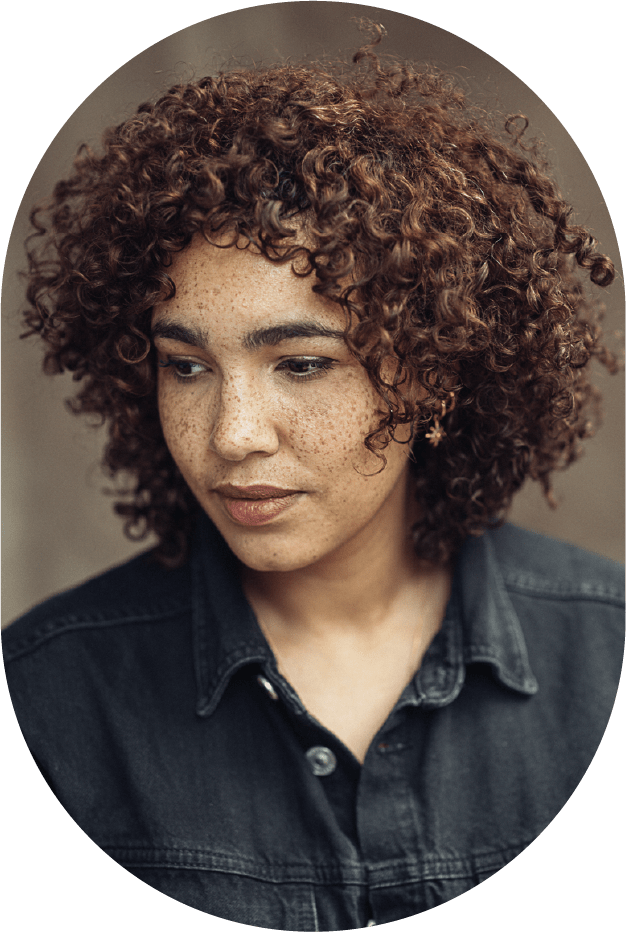



This year momentum was created for change














7 min









